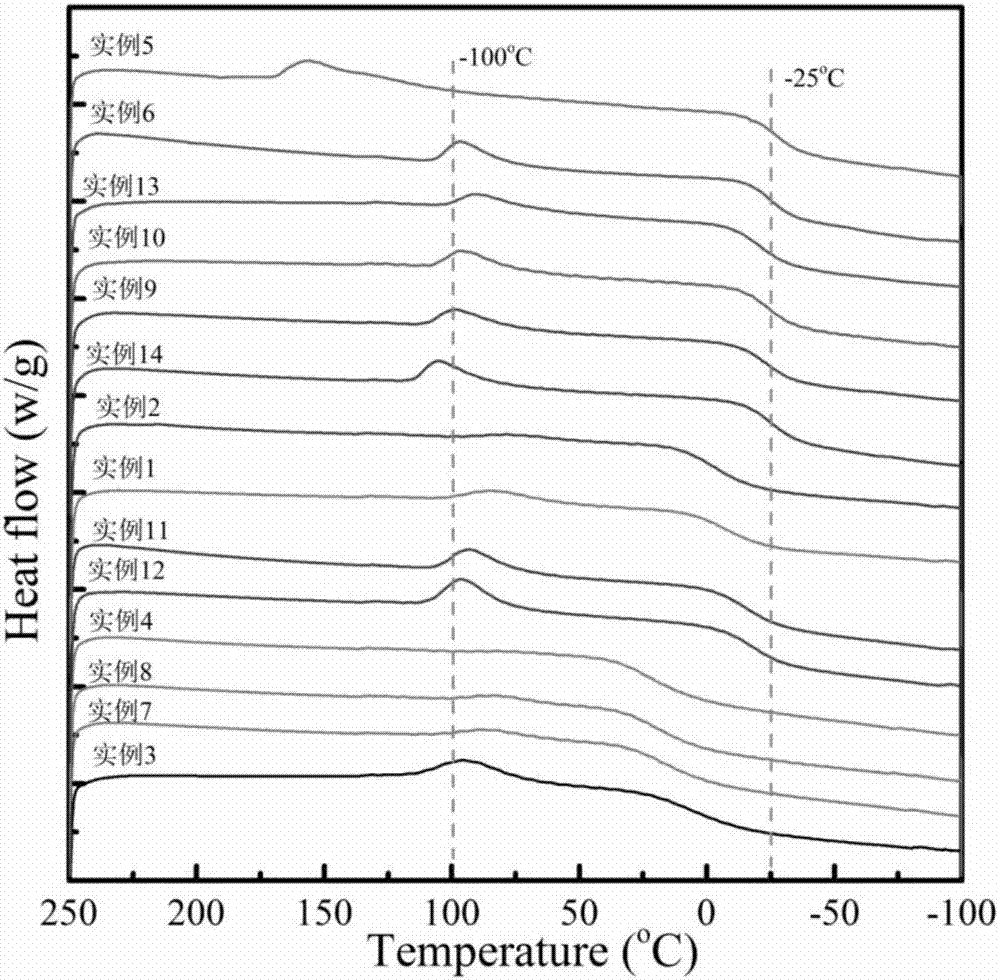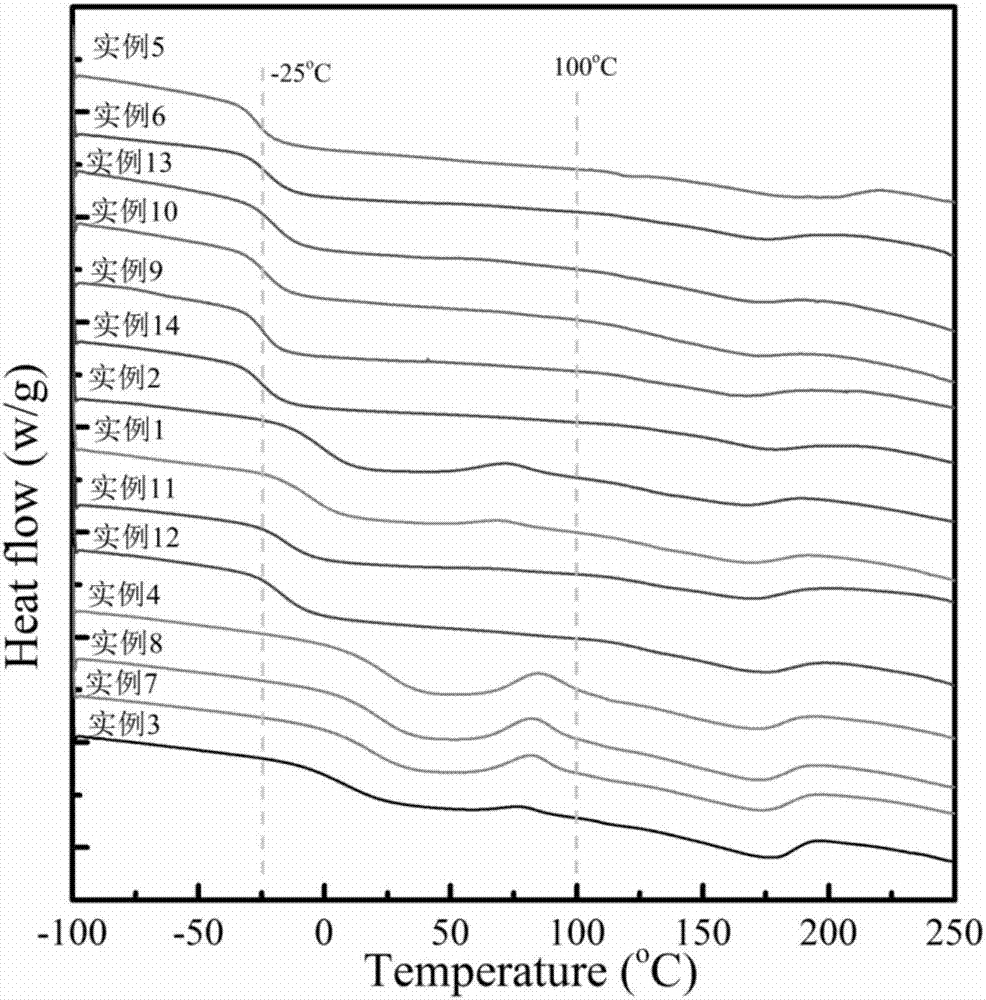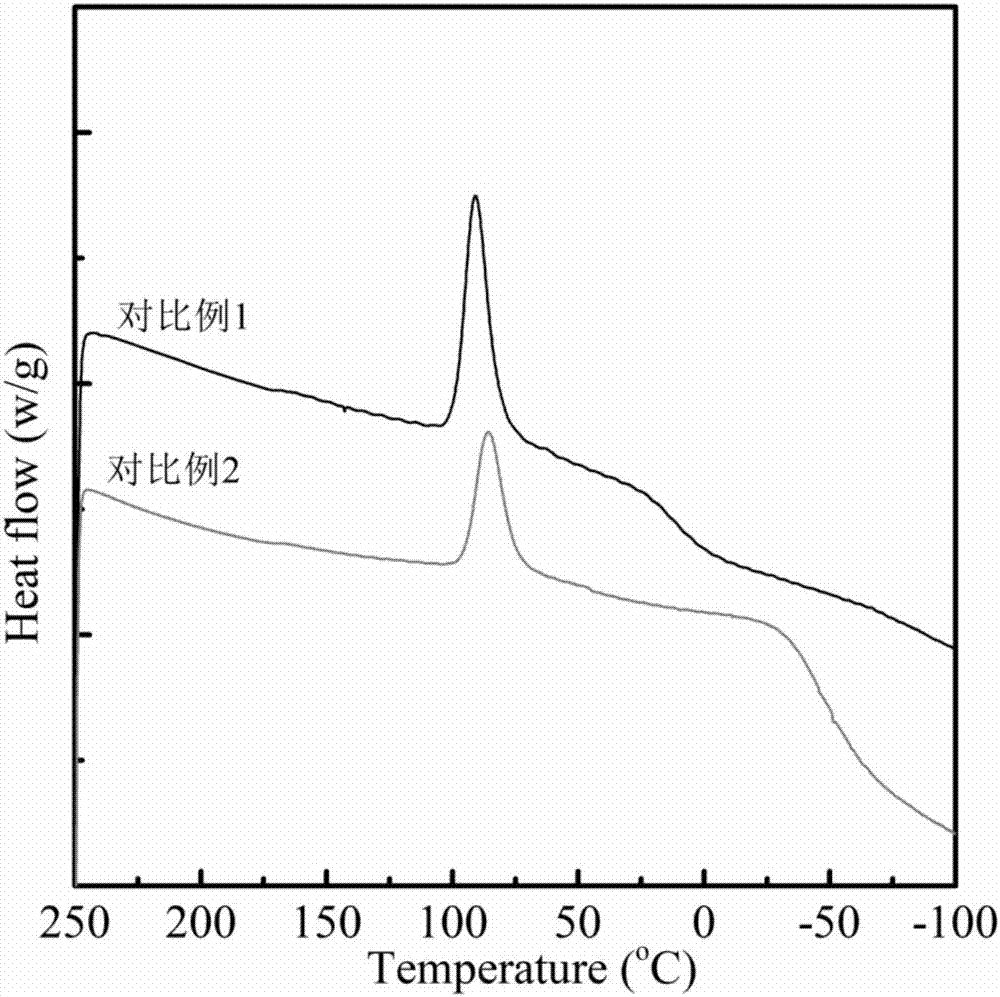Crystallization controllable thermoplastic polyurethane material and preparation method thereof
A thermoplastic polyurethane, crystallization technology, applied in the field of thermoplastic polyurethane materials and its preparation, can solve the problems of reducing crystallinity, inappropriate rapid prototyping, expensive, etc., achieve the effect of reducing shrinkage rate and improving biological utilization value
- Summary
- Abstract
- Description
- Claims
- Application Information
AI Technical Summary
Problems solved by technology
Method used
Image
Examples
Embodiment 1
[0053] Polyethylene adipate diol with a number average molecular weight of 2000 g / mol, 1,4-butylene diamine, cyclodextrin derivative 2,6-diaminopentyl-β-cyclodextrin and 1, 4-Cyclohexyldimethanol was vacuum dehydrated at high temperature.
[0054] Heat 32.2 parts (parts by weight, the same below) of diphenylmethylene diisocyanate to 70°C, then add 50 ppm of dibutyltin dilaurate, based on the quality of diphenylmethylene diisocyanate and 60 parts of number average molecular weight 2000g / mol polyethylene adipate diol and 2 parts of 2,6-diaminopentyl-β-cyclodextrin were reacted at 70°C for 1h to obtain a stable prepolymer, and then 7.6 parts were expanded Chain agent, among them, 5.07 parts of the main chain extender 1,4-butylene diamine and 2.53 parts of the auxiliary chain extender 1,4-cyclohexyldimethanol are added to the prepolymer obtained before, after high-speed stirring and mixing, pour into Put it into the mold, put it into an oven at 80° C., and mature it for 20 hours,...
Embodiment 2
[0056] Polyethylene adipate diol with a number average molecular weight of 600 g / mol, cyclodextrin derivatives 2,6-dihydroxypentyl-β-cyclodextrin, 1,8-octyldiamine and spirocyclic Ethylene glycol is vacuum dehydrated at high temperature.
[0057] Heat 45.2 parts of diphenylmethylene diisocyanate to 100°C, then add 50 ppm of dibutyltin dilaurate, based on the mass of diphenylmethylene diisocyanate and 50 parts of polyhexamethylene diisocyanate with a number average molecular weight of 600 g / mol Acetate ethylene glycol ester diol and 2 parts of 2,6-dihydroxypentyl-β-cyclodextrin, react at 100°C for 1.5h to obtain a stable prepolymer, and then add 12 parts of chain extender, of which 4.5 parts Add the main chain extender 1,8-octanediamine and 7.5 parts of chain extender spiroethylene glycol to the prepolymer obtained before, stir and mix evenly at high speed, pour it into the mold, and put it in an oven at 120°C for curing After 24 hours, cool and pulverize the obtained thermopl...
Embodiment 3
[0059] Polytetrahydrofuran diol with a number average molecular weight of 800 g / mol, methyldiethanolamine, cyclodextrin derivatives 2,6-diaminooctyl-β-cyclodextrin and isophoronediamine were vacuum dehydrated at high temperature .
[0060] 27.8 parts of 4,4'-dicyclohexylmethane diisocyanate were heated to 50°C, followed by the addition of 100 ppm of bismuth isooctanoate, based on the mass of 4,4'-dicyclohexylmethane diisocyanate and 66.4 parts of number average molecular weight 800 g / mol Polytetrahydrofuran diol and 3 parts of 2,6-dihydroxyoctyl-β-cyclodextrin were reacted at 50°C for 0.5h to obtain a stable prepolymer, and then 5.8 parts of chain extenders were added, of which 4.35 parts were the main extenders Add the chain agent methyldiethanolamine and 1.45 parts of chain extender isophoronediamine to the prepolymer obtained before, stir and mix evenly at a high speed, pour it into a mold, put it in a 100°C oven for aging for 20 hours, cool, The obtained thermoplastic pol...
PUM
 Login to View More
Login to View More Abstract
Description
Claims
Application Information
 Login to View More
Login to View More - R&D
- Intellectual Property
- Life Sciences
- Materials
- Tech Scout
- Unparalleled Data Quality
- Higher Quality Content
- 60% Fewer Hallucinations
Browse by: Latest US Patents, China's latest patents, Technical Efficacy Thesaurus, Application Domain, Technology Topic, Popular Technical Reports.
© 2025 PatSnap. All rights reserved.Legal|Privacy policy|Modern Slavery Act Transparency Statement|Sitemap|About US| Contact US: help@patsnap.com



